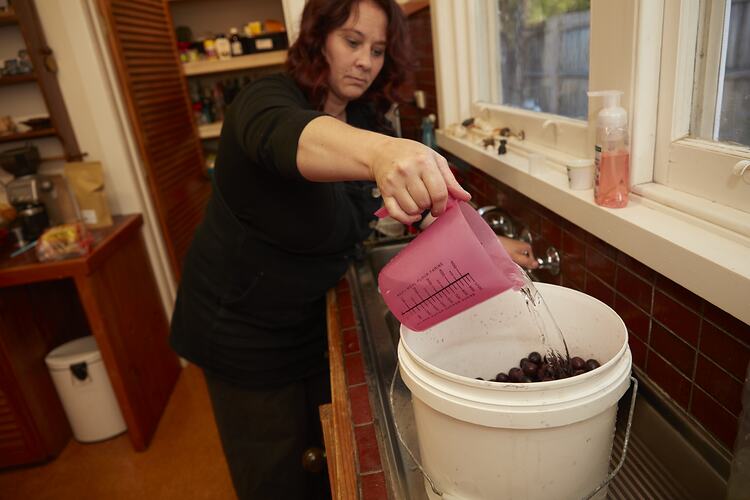Summary
One of a series of photographs documenting the modification and adaptation of home spaces for work, study and leisure during the COVID-19 pandemic lockdown. Ruth Hazleton and her family have their home set up for two people working day jobs, a school space for their son, and spaces for music rehearsal and online broadcasts. Ruth is a children's play and folklore specialist and a musician. Bill is a musician, and has managed to record most of an album while in lockdown. Their son is a primary school student. The photographs include activites such as baking and play.
The photographs were taken by Museums Victoria photographer Jon Augier, part of a project to document the experiences of Victorians during the COVID-19 pandemic.
Ruth explains: 'During lockdown we began ordering our grocery items online from local businesses. This (and the fact that shopping is something we try not to do very often) has resulted in us being more mindful about food wastage. The first two pictures show C and I making banana bread, which we do on average once a week. It's a great opportunity for C to learn to cook. Another staple during lockdown has been stewing rhubarb and apple. The following images illustrate the process of preserving olives in brine. If I have the time available, I try to do this every year and will traditionally pick the olives from a neighbour's tree on Mother's Day. The process involves cutting and soaking the olives in brine which is changed every 1-2 days until the bitterness in the olives has disappeared. I will then bottle them in a brine and malt vinegar mixture with fresh herbs and garlic from the garden. I would usually grow winter vegetables but consumer demand for seedlings at the beginning of lockdown made me decide to leave the garden until next season.'
Description of Content
Woman pouring water into a bucket containing olives.
Physical Description
Born Digital Image.
More Information
-
Collection Names
-
Collecting Areas
-
Photographer
-
Person Depicted
-
Format
Digital file, Colour
-
Classification
-
Category
-
Discipline
-
Type of item
-
Keywords
